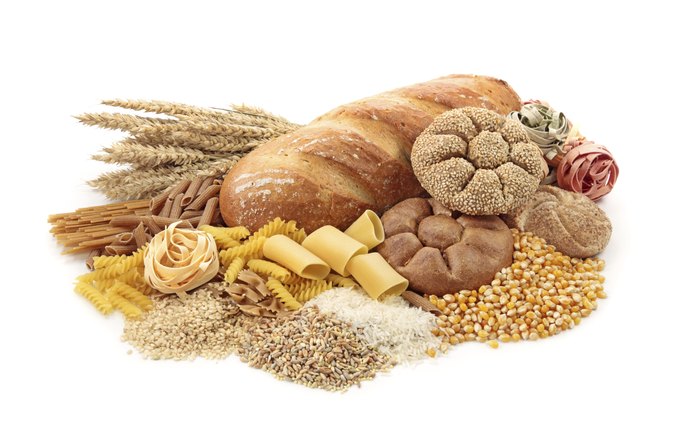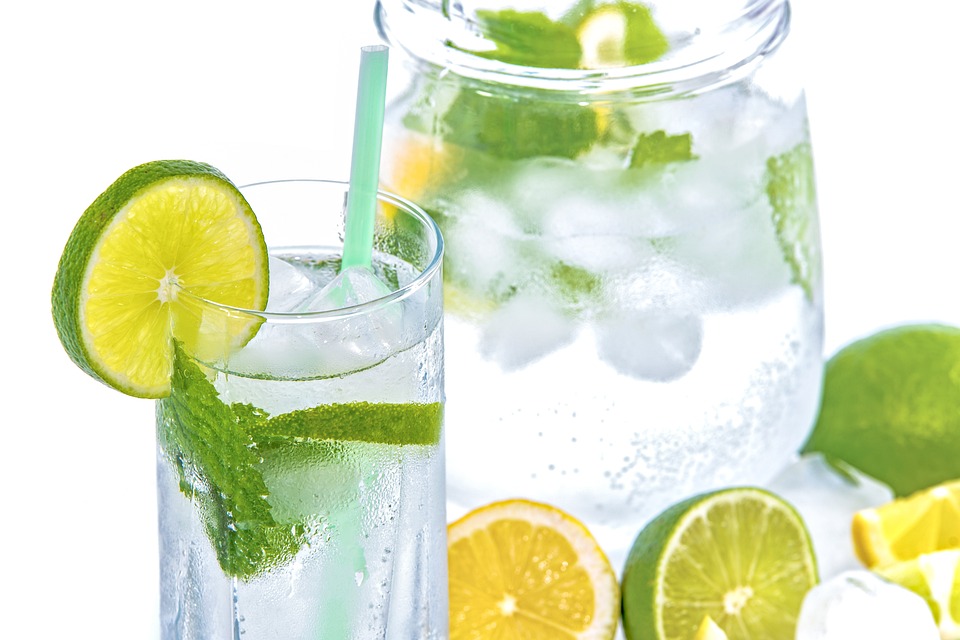1.Carbohydrates
 Carbohydrates provide fuel to all cells, organs and tissues in the form of glucose. Some of its sources include foods such as whole grains, fruits, vegetables and legumes. You may also get good amount of carbohydrates in foods like candies, pastries, cookies and flavoured beverages. Carbohydrate is one of the important components of a balanced diet. On an average, an adult should get about 45 percent to 65 percent of their calories from carbohydrates.
Carbohydrates provide fuel to all cells, organs and tissues in the form of glucose. Some of its sources include foods such as whole grains, fruits, vegetables and legumes. You may also get good amount of carbohydrates in foods like candies, pastries, cookies and flavoured beverages. Carbohydrate is one of the important components of a balanced diet. On an average, an adult should get about 45 percent to 65 percent of their calories from carbohydrates.
2.Vitamins
Vitamins help with chemical reactions in the body and that is why the body needs 13 different vitamins to grow and develop. Each vitamin helps with certain functions. For example, vitamin A improves vision, vitamin C maintains healthy skin and vitamin D keeps the bones and teeth strong. You can get vitamins from fresh fruits and vegetables or from vitamin supplements.
3.Fiber
Fiber, often referred to as roughage, is a type of carbohydrate found in plant foods that the body is not able to digest or absorb. Eating a balanced diet that is high in fiber can keep your body systems regular and contribute to a lowered risk of chronic disease.

4.Fats
Fat is an important part of a balanced diet. It contributes to around 25 percent to 35 percent of the daily caloric intake, however, the content of saturated fats should be kept to no more than 10 percent of the total fat intake. The healthiest fats come from mono saturated and polyunsaturated sources such as nuts, olive oil and fish. One can skip trans-fatty acids entirely.
5.Minerals
Minerals are very important for the body and they need to be delivered through food since the body can't make them. Many minerals, such as calcium, potassium and iron are vital to the proper functioning of the body and must be taken in relatively large amounts. Other trace minerals like zinc, selenium and copper are only needed in small amounts to maintain good health.
6.Water
Water is essential to our survival and should be taken in adequate amounts. It keeps the body hydrated and let the body function properly. Water accounts for 55%-65% of body weight, but because the body can’t store water, we must constantly replenish it.
7.Protein

Proteare nutrients that are essential to the building, maintenance and repair of body tissues such as the skin, the internal organs and muscles. Out of 22 protein types, the body can make 14, the other 8, called essential amino acids, can only be obtained from food. A balanced diet has to be rich in these 8 proteins. Fish, meat, poultry, eggs, cheese and other foods from animal sources provide all the eight essential amino acids.


No comments:
Post a Comment